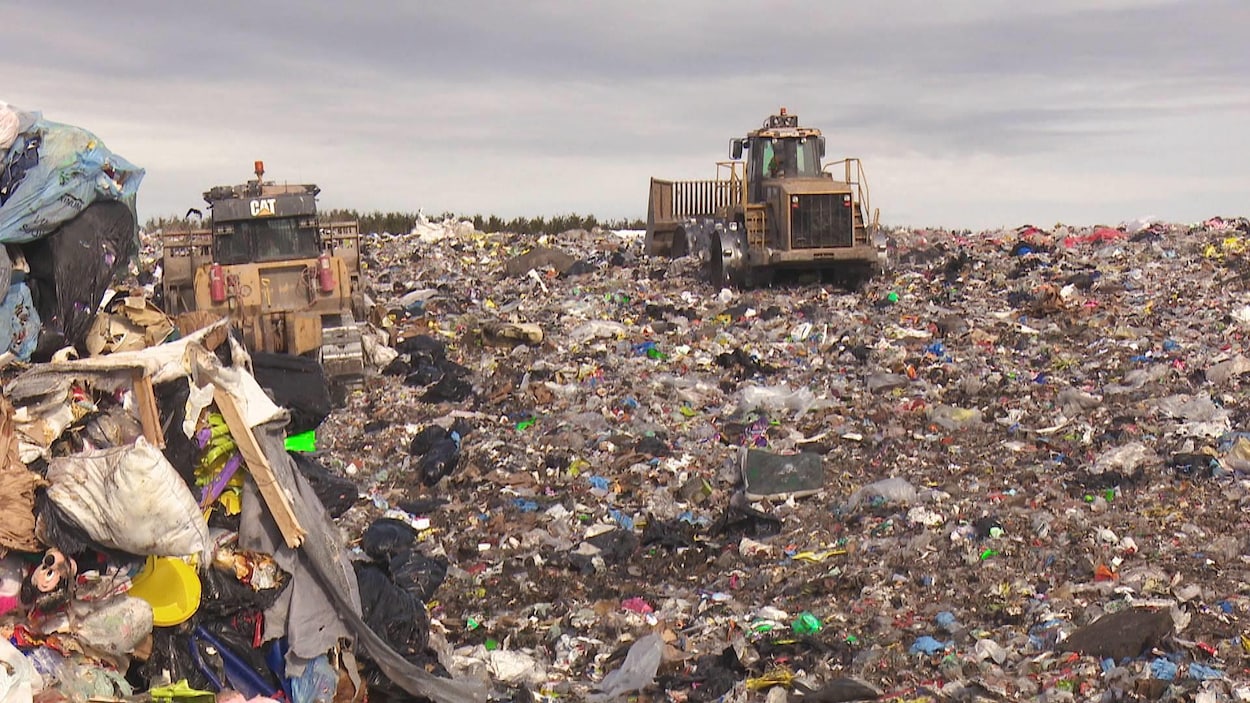Two-thirds increase in waste by 2050: The volume of global waste, at 2.3 billion tons in 2023, is expected to continue to grow significantly, in the absence of action, with a huge impact on health and the economy, the United Nations warned on Wednesday.
At this rate, current waste (excluding industrial and construction waste) is expected to reach 3.8 billion tons by mid-century, exceeding the expectations of the previous report devoted to this topic by the World Bank.
The crisis will be more severe as its growth is expected to be particularly noticeable in countries where the way it is treated remains polluting: landfills, open burning (soil pollution, emission of greenhouse gases such as methane or pollutants such as soot carbon). ).
Despite the efforts, not much has changed
summarizes the new report released by the United Nations Environment Program (UNEP). Humanity has fallen backwards, generating more waste […] Billions of people do not benefit from garbage collection.
If the basics are collected in rich countries, the collection rate is less than 40% in low-income countries.
Increased health risks
Today, between 400,000 and 1 million people die every year from diseases linked to improper waste management (diarrhoea, malaria, cardiovascular diseases, cancer), confirms the report issued at the sixth session of the United Nations Environment Assembly, organized this week. In Nairobi.
Waste left on the ground spreads pathogens, heavy metals and other endocrine disruptors into the soil and groundwater for an extended period. Open burning releases persistent pollutants into the atmosphere. Organic waste decomposing in landfills is responsible for 20% of human emissions of methane, the hottest of all greenhouse gases.
Financial factor
If nothing is done, the direct and indirect cost of waste worldwide is expected to double to $640 billion annually by 2050, this report estimates. A guide and call to action
.
In 2020, the direct cost of waste treatment was estimated at $252 billion ($361 billion if we include indirect costs associated with pollution resulting from inappropriate facilities or management methods).
There is emergency
I started Drastic reduction in litter
Investing in the circular economy, and calls on the United Nations to: We must work to avoid the worst scenario.
Many fast-growing economies are struggling under the weight of increasing waste
confirms the manager United Nations Environment ProgrammeInger Andersen, pointing out The main role
Public and private actors you can find there Opportunities to create more viable communities
.
Save waste On probation
It is possible, especially through better treatment methods, to limit their net annual costs to $270 billion by 2050.
But it is possible to go further, by moving towards a truly circular economy, better industrial practices, and full management of residual waste, all of which could generate net gains of more than $100 billion per year (energy generation, reuse, job creation). . etc.), says the report, entitled Converting waste into resources
.
But it is among the obstacles that authors always notice Failure to acknowledge this urgent necessity
: Political leaders must realize the urgency of the crisis and its effects on society
They insist.

“Total coffee aficionado. Travel buff. Music ninja. Bacon nerd. Beeraholic.”






More Stories
Fluoroscopy | “Self-coup”?
This is why you find it difficult to wake up in the morning.
She meets her boss at the airport after taking sick leave.